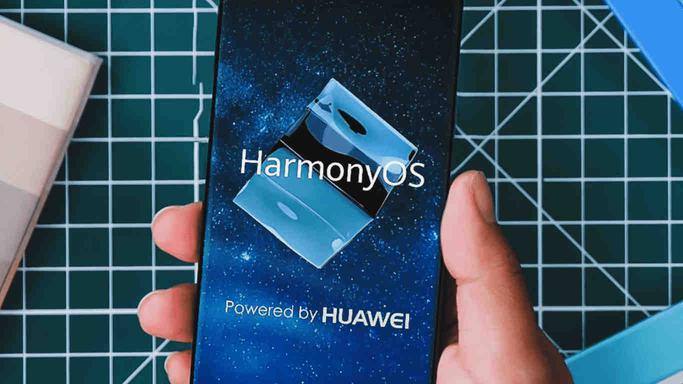There is no need to present Huawei, the Chinese tech giant accused of espionage by the US and therefore hit by sanctions in the last two years. Also in Italy (and in Europe) the company is seen as a potentially risky supplier, due to its ties with Beijing and the Chinese law that guarantees the State full access to customer data, including foreign ones.
Over the past two years, Huawei has had to reinvent itself. It has enhanced the software sector and sold a division, Honor, by selling it to a subsidiary of the Chinese state but freeing it from the yoke of sanctions. This has caught the attention of US senators, who are now clamoring for Honor to be sanctioned - as it would be the same danger under another name.
But there is a larger problem: sanctions may soon become obsolete. Huawei's new crown jewel has a name - Harmony OS - and a strategy to fit into any kind of device, regardless of brand, giving the company the ability to silently arrive on billions of devices and go under the radar of regulators.
The decline
In 2019, the Trump administration blacklisted Huawei and about seventy affiliates, limiting access to US suppliers. This prevented the Chinese company from obtaining many sophisticated components, necessary for advanced smartphones, and also cut it out of the Google ecosystem.
The Shenzen-based company could continue to use Android, an open source system, but could not use Google apps or the proprietary Google Mobile Services (GMS), the backbone of Android phones, which control essential functions such as notifications, security. , localization.
This streak undermined the success of the company, which was the world's top phone maker in mid-2020. Not even a year later, Huawei had risen from 20% to 4% of the global market share. But in Shenzen they never stood idle.
Plan B
When sanctions hit it, Huawei was not caught unprepared. “We have set up our operating system. If it ever happens that we can no longer use [American systems], we would be ready. This is our plan B, ”Huawei CEO Richard Yu told Die Welt at the time.

Two years later the alternative is ripe: it is called Harmony OS (Hongmeng OS in China) and the latest version has been installed on at least 120 million Huawei and Honor devices including phones, tablets and watches, but not only.
Harmony has never been a "classic" operating system. Conceived in 2016 to run internet of things (IoT) devices such as screens, watches, but also thermostats and refrigerators, with Harmony, Huawei's goal was to anticipate interconnected life and design ahead of time a system created to connect even very different devices. .
More properly - and according to Huawei itself - it is a platform for different devices, a sort of amorphous "engine". A Harmony app works smoothly (and requires no tweaking) on any type of device, from microwave to smartphone. The whole system is extremely flexible, which has allowed Huawei to rework it to reduce its reliance on Google.
Today it works like this: Huawei takes Android, puts the “heart” (kernel) of Harmony alongside us and renames the entire system. That kernel is what allows the company to replace GMS services with their own (Huawei Mobile Services, or HMS). But it's not just phones upgraded with Harmony OS that have regulators to worry - it's the entire platform.
A widespread danger
Harmony is a cutting-edge product, conceived as the basis of the IoT. It was specifically designed to be adopted by other brands and connect different devices to each other: a real panacea for the Chinese consumer and therefore the Chinese market, where competition is fierce and software fragmentation rampant.
The main Chinese phone brands such as Xiaomi, Oppo and Vivo have already expressed interest in replacing Android with Harmony OS, as is already the case with Huawei and Honor phones both in China and abroad. For his part, Huawei founder Ren Zhengfei told employees that Huawei must become a software giant to escape US sanctions, and the company wants to bring Harmony to 1.2 billion devices in 2022.
The road seems to have been drawn: Harmony has a very good chance of becoming pervasive in Chinese products, including those sold around the world. And here it must be remembered that in China the borders between state and business are very blurred, sometimes non-existent, by virtue of local law: one of the reasons why Chinese technology scares Western regulators.
With Harmony, the rules of the game change because the concept of an unreliable supplier collapses: what is the point of opposing a single brand like Huawei when its operating system, created and maintained within the Chinese state, moves phones, smartwatches, appliances and even homes intelligent?
More and more things will become connected in the IoT, and China is the largest producer and exporter of consumer electronics. Also considering the need to make the digital transition, doing without Chinese tech is fundamentally unthinkable even for the richest countries.
Hopefully Harmony will promote competition, if it goes badly, the Chinese-Harmony hardware integration will become so solid that it admits no alternatives. We can think of completely differentiating Chinese and Western software, a very complex issue that requires regulation that is difficult to implement. The alternative is to resign oneself to living with technologies that are beyond the control of our legal systems.
Share viaNo related posts.
